Strikes in the Netherlands
The Netherlands, a land known for its picturesque canals, tulip fields, and efficient public transport, is not immune to social movements and industrial actions that impact daily life. Strikes, particularly in the travel sector, are significant events that can disrupt routines and affect both residents and tourists alike. The organized and highly regulated Dutch society ensures that these strikes are both impactful and somewhat predictable. Understanding the nature, causes, and implications of strikes in the Dutch travel sector can provide valuable insights for travelers and regular commuters.
Historical Context and Frequency
Strikes in the Netherlands have a storied history, often tied to broader labor movements and economic conditions. The Dutch workforce is highly unionized, with significant representation in sectors like public transport, aviation, and railways. The proactive nature of Dutch labor unions means that strikes are sometimes used as a tool of last resort after extensive negotiations with employers and government bodies.
Historically, the frequency of strikes can vary. For example, during economic downturns or periods of austerity, strikes tend to be more prevalent as workers push back against job cuts, salary freezes, and deteriorating working conditions. Conversely, during times of economic growth, strikes may be less frequent but can still occur when workers demand a fair share of the prosperity.
Key Sectors Affected
The travel sector in the Netherlands is particularly vulnerable to strikes due to its public-facing nature and the essential services it provides. The main areas affected include public transportation, aviation, and railway services.
Public Transportation
Public transportation strikes typically involve bus and tram services, coordinated by unions like FNV and CNV. These strikes can cripple urban mobility, leading to congested roads and increased demand for alternative travel options like taxis and bike rentals. For tourists relying on public transport to explore cities such as Amsterdam, Rotterdam, and Utrecht, these strikes can be more than a minor inconvenience.
Aviation
Aviation strikes, often involving pilots, cabin crew, and ground staff, can lead to widespread disruption. Schiphol Airport, one of Europe's busiest, can come to a near standstill during such strikes. Flights may be delayed or canceled, stranding passengers and causing logistical nightmares for international travelers. Strikes in this sector can also ripple out, affecting flight schedules and passenger flows across Europe and beyond.
Railway Services
The Dutch railway network, primarily operated by NS (Nederlandse Spoorwegen), is another sector frequently impacted by strikes. These strikes can halt intercity and regional train services, severely affecting daily commutes and long-distance travel. Given the high reliance on trains for both domestic and international journeys, such disruption can significantly alter travel plans.
Causes and Triggers
The causes of strikes in the travel sector are varied but generally revolve around issues such as wages, working conditions, job security, and administrative policies.
Wage Disputes
One of the most common triggers for strikes is wage disputes. Workers demand fair compensation that aligns with inflation rates and economic growth. Negotiations over collective bargaining agreements can be particularly contentious, occasionally leading to strikes when parties fail to reach an agreement.
Working Conditions
Another significant factor is the demand for improved working conditions. Issues such as long working hours, lack of breaks, insufficient safety measures, and inadequate staffing levels can push workers to strike. The COVID-19 pandemic has further highlighted these issues, with increased pressure on frontline workers in the travel sector.
Job Security
Job security, particularly during economic downturns, is another critical issue. Strikes can be a preemptive measure against planned layoffs or restructuring efforts by companies seeking to cut costs. Workers use strikes to signal their discontent and pressurize employers to consider alternative solutions.
Impact on Travel and Tourism
The impact of strikes on travel and tourism can be profound. For tourists, strikes can lead to canceled plans, additional expenses, and a general sense of frustration. The Dutch tourism sector, which is vital to the economy, can suffer both in terms of reputation and revenue when strikes cause widespread disruption.
Tourist Mobility
Tourist mobility is one of the immediate casualties of travel sector strikes. Reliable public transport is crucial for tourists who depend on it to visit various attractions. Strikes can lead to missed tours, inaccessible sites, and a general sense of chaos. This can negatively affect the overall tourist experience, leading to poor reviews and decreased future visits.
Economic Implications
The economic implications of strikes are also noteworthy. Beyond the immediate financial losses for transport companies, strikes can deter potential tourists, impacting the broader hospitality sector, including hotels, restaurants, and retail businesses. The longer the strike, the greater the financial impact on the economy.
Strategies for Travelers
When planning travel to the Netherlands, it is wise to consider potential strikes and have contingency plans in place. Here are some strategies to mitigate the impact of strikes:
Stay Informed
Being aware of potential strikes can help in planning and reducing inconvenience. Travelers should monitor local news sources and official announcements from transport companies. Websites and apps from operators like NS, GVB (Amsterdam's public transport company), and airlines frequently update passengers on impending strikes and service disruptions.
Flexible Itinerary
A flexible itinerary can go a long way in dealing with the uncertainties caused by strikes. Travelers should consider alternative modes of transport and remain open to rescheduling activities. Flexibility in accommodation bookings and tours can also help mitigate the impact of unforeseen disruptions.
Alternative Transport Options
Exploring alternative transport options is another effective strategy. In urban areas, taxis, bike rentals, and even walking can be viable alternatives. For intercity travel, consider renting a car or traveling by a long-distance bus service like FlixBus, which might not be affected by strikes targeting specific sectors like railways.
Travel Insurance
Investing in comprehensive travel insurance can provide a safety net against the financial implications of strikes. Policies that cover trip cancellations, delays, and additional expenses incurred due to strikes can offer peace of mind and ensure that travelers are not left out of pocket.
Strikes in the Netherlands' travel sector are not uncommon and can significantly disrupt both daily commutes and tourism. Understanding the historical context, key sectors affected, causes, and potential impacts can help travelers better prepare for such eventualities. With the right strategies and contingencies in place, dealing with travel disruptions due to strikes can become a manageable aspect of exploring this beautiful country.
KLM strike cancels 100 flights at Schiphol on Sept. 10
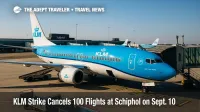
Boeing Strike Threatens Jet Supply Chain

Boeing defense strike vote could ripple into trans-Pacific travel

Edinburgh Bus Strike Threatens Fringe Festival Travel
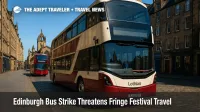
Portugal Airport Strike Triggers Summer Baggage Delays
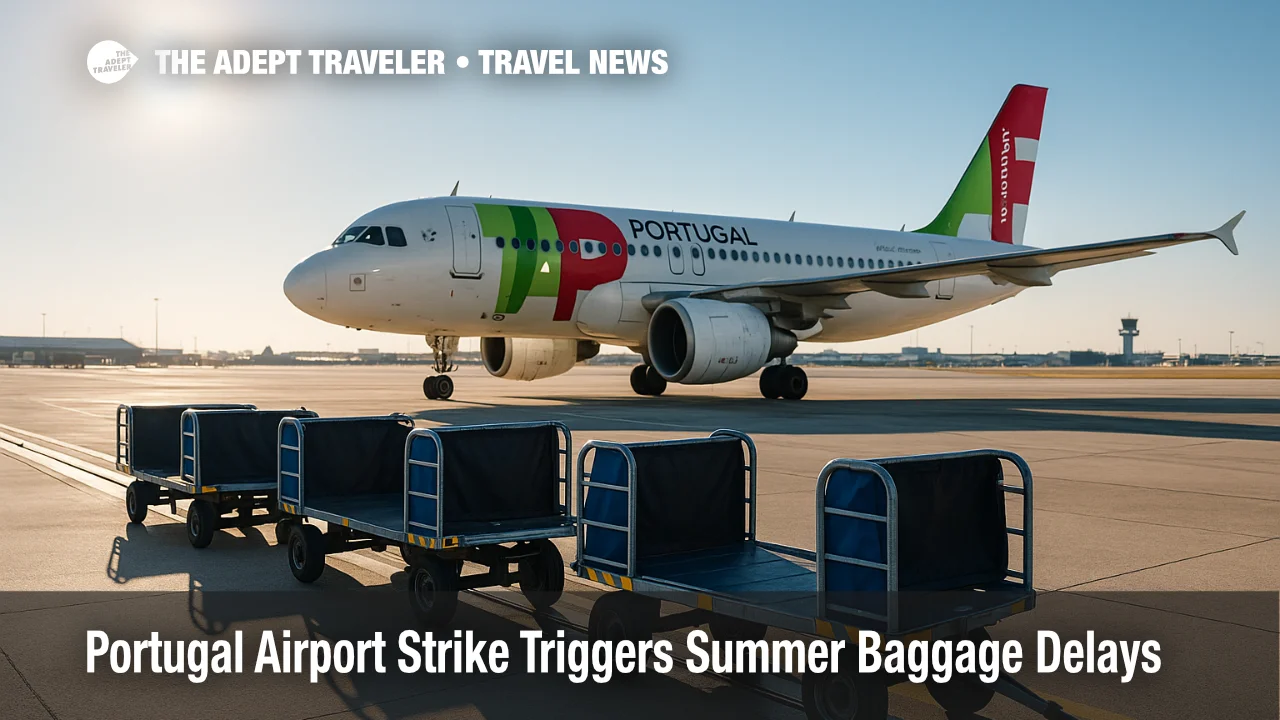
Europe Airport Strikes: Compensation and Re-Routing Guide
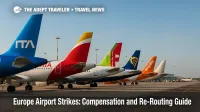
Palma de Mallorca Airport Strike Sparks Peak-Season Disruptions
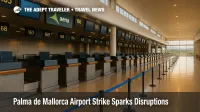
Portugal airport strike: five summer weekends of disruption ahead
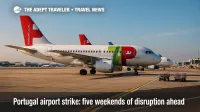
Air Canada Flight Attendants Launch Strike Vote Ahead of Mid-August Deadline

European Summer Flight Delays: The Math Behind the Crunch
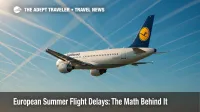
Final Day of SATA Azores Strike Snarls Island Flights

Lima Transport Strike to Disrupt Independence Day Travel
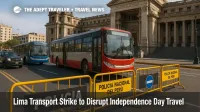
France Air Traffic Control Strike Update: Travel Impact
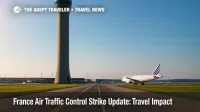
Palma Airport Protest Set to Disrupt Balearic Flights
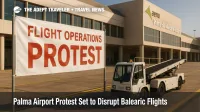
Italy Airport Strike to Disrupt Flights July 26
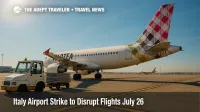
European Air Traffic Strikes Spark Summer Travel Chaos
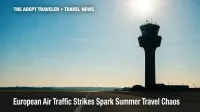
French Air Traffic Controller Strike Grounds Over 1,000 Flights Across Europe
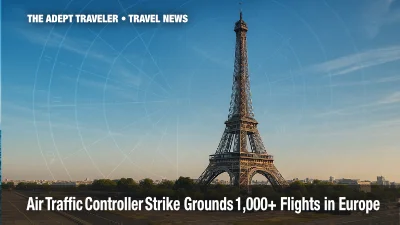
Palermo Airport Strike on July 11, 2025: What Travelers Need to Know
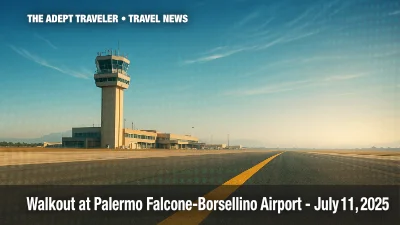
Major Italian airport walkouts threaten mid-summer travel on July 10, 2025
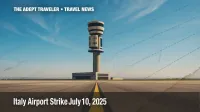
London Underground Strike Set for July 8-9: What Tube Riders Need to Know
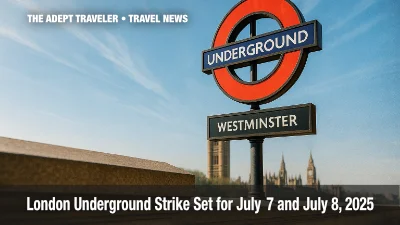
Italy Ferry Strike on July 5-6 2025: What Travelers Need to Know

KLM Strike on June 28: How to Avoid Disruption at Schiphol

Belgium Airport Strike Shuts Brussels and Charleroi on June 25
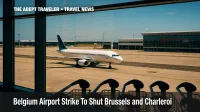
Italy National Strike Halts Trains and Flights June 19‑20
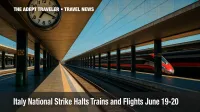
Louvre Strike Shuts Museum, Overtourism Crisis Deepens

